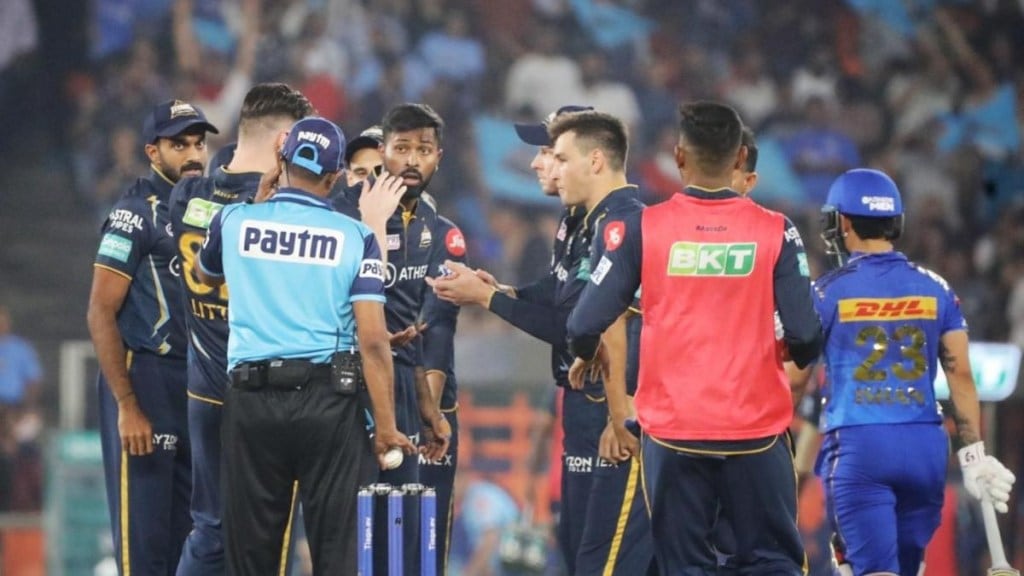It was bound to happen. The only surprise was that it took the decision-makers in Indian cricket so long to wake up to it. The recent cases of Ishan Kishan and Shreyas Iyer, who have given a cold shoulder to the hard grind of the Ranji Trophy, probably to keep themselves in prime order for the upcoming Indian Premier League, shouldn’t leave anyone in doubt over the long shadow cast by T20 franchise leagues on Test cricket as well as domestic cricket around the globe.
And this time, it’s not financially insecure boards like West Indies and New Zealand that are trying to deal with it. BCCI secretary Jay Shah had to write to all centrally-contracted players to not skip the Ranji Trophy with the IPL a month away.
Even retiring Bengal veteran Manoj Tiwary flagged this trend in a freewheeling interview with The Indian Express saying many players coming up are not too keen on the hard work that the domestic circuit requires. He says that once a player lands an IPL contract, avoiding injury becomes his overriding priority. When they do play Ranji Trophy, it’s as if they are auditioning for a role in a T20 side. The money on the line is just too much to ignore.
Gone are the days when playing for the national team was the only way to earn a decent livelihood or develop a fan following. Remuneration for playing the Ranji Trophy and other domestic tournaments has gone up exponentially over the years, but they still pale into insignificance in comparison to what a typical T20 gig can bring, which also involves only a fraction of the hard work that first-class cricket entails. And with domestic cricket usually played in front of empty galleries and T20 leagues enjoying big crowds and TV viewership, a few big hits or a few lucky wickets can get one in the headlines.
Different yardsticks
As much of a concern as centrally-contracted players skipping Ranji Trophy is, there is an elephant in the BCCI room in the form of Hardik Pandya. The last first-class game the Baroda cricketer appeared in was more than five years ago but has been given a free exemption by the board owing to his presumed usefulness to Indian prospects and the seam-bowling all-rounder being a rare breed in the country’s cricketing ecosystem. Sundry board officials even make excuses for him, lamenting that his body can’t withstand the rigours of long-form cricket.
Well, he was part of the 50-over World Cup squad, but his involvement lasted less than four matches before he was unavailable due to an ankle injury, which, by some accounts, shouldn’t have been tournament-ending. Pandya hasn’t graced a cricket match since, but is expected to be ready for the IPL a month from now after his high-profile return from Gujarat Titans to Mumbai Indians, now as captain.
Not only do BCCI bigwigs turn a blind eye to it, but the news of Kishan training with his franchise captain in Baroda ahead of the IPL season has them frothing at the mouth.
There is some selective outrage at play here. Jasprit Bumrah, the biggest difference-maker for India in the ongoing series against England, has been asked to sit out a crucial Test, apparently against his wishes, citing the several marquee events coming up, which include – you guessed it – the IPL! Once the genie is out of the bottle, it’s very difficult to control it.
It’s not that this Test vs franchise cricket dynamic is limited to India. Recently, South Africa sent a rookie side to New Zealand because their best players were contracted to appear in the SA20 league, and they couldn’t get the Test series rescheduled. Please note that it was the international bilateral commitment – part of the Future Tours Programme – that needed to be moved. The dates for the franchise tournament were apparently cast in stone.
Ethical issues
The number of domestic T20 leagues around the world is not going to come down in the days to come. It makes the cricket calendar cramped and almost unsustainable. In addition to the actual number of these leagues is the fact that many of them overlap. The Bangladesh Premier League, ILT20 in the UAE, SA20 and the Pakistan Super League are organised roughly at the same time of the year, with many players common between two or more of them.
With several cricketers available to franchises for less than the duration of the tournament, an issue that potentially can have ethical ramifications crops up.
There’s always the chance that a player can be recruited midway or even towards the end of a tournament. Such is the turnover in these leagues that it’s often difficult to keep track of who’s playing for whom. There’s the possibility that a player can have an offer from one franchise while playing for another in a different league.
Theoretically, it may be to a player’s financial interest that the team he is turning out for is eliminated early so that he can go and play for another one in another country.
Not that any player would necessarily think along those lines, but the number and scheduling of T20 leagues could potentially raise issues regarding the integrity of the game.
One always hears platitudes from players about the primacy of Test cricket and how they would like the franchise cricket schedule to be streamlined. But till the time that happens, these global T20 professionals won’t think twice before jumping from continent to continent, playing for different teams in a matter of a couple of days.
And as far as ethical considerations go, a lucrative deal often goes a long way in silencing any pangs of conscience, if indeed there are any.

